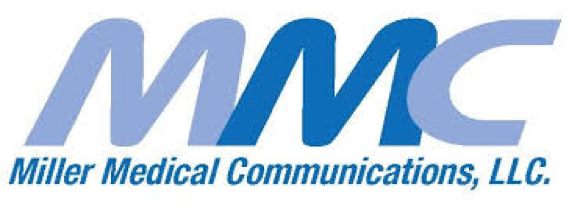Lessons Learned from Newborn Screening for Pompe Disease and Mucopolysaccharidosis Type 1
Early Intervention Influences Outcomes
Program Overview
Pompe disease (PD) and mucopolysaccharidosis type I (MPS I) are life-threatening lysosomal storage disorders manifesting as a spectrum of phenotypes of varied severity, onset, and organ involvement. Although newborn screening (NBS) for PD and MPS I has not yet been adopted in all states despite inclusion in the RUSP, it has provided key learnings in that a positive NBS screen is a critical first step in a diagnostic algorithm. An early diagnosis and the establishment of the right phenotype is essential for disease management of both PD and MPS I because earlier initiation of treatment is associated with markedly better clinical outcomes, including cognitive outcomes.
This enduring activity will feature 3 expert faculty and be delivered in a dynamic plenary and case-based format to maximize interactivity, engagement, and retention.
Target Audience
This activity is designed for primary care physicians, genetic counselors, geneticists, neurologists, physician assistants, and other health care professionals interested in the field of genetic diseases.
Educational Objectives
After completing this activity, the participant should be better able to:
- Discuss the phenotype spectrum of Pompe Disease and MPS I
- Analyze the diagnostic algorithm for Pompe Disease following a positive newborn screen
- Review treatment approaches for Pompe Disease and the importance of early initiation of treatment
- Analyze the diagnostic algorithm for MPS I following a positive newborn screen
- Review treatment approaches for MPS I and the importance of early initiation of treatment
Activity Reviewer
Darrel J. Waggoner, MD
Clinical Professor of Human Genetics
Pritzker School of Medicine
Medical Director, Human Genetics
UChicago Medicine
Chicago, Illinois
Disclosure of Conflicts of Interest
As a provider accredited by the ACCME, The University of Chicago Pritzker School of Medicine requires everyone who is in a position to control the content of an education activity to disclose all relevant financial relationships with any commercial interest. This included any entity producing, marketing, re-selling, or distributing health care goods or services consumed by, or used on, patients. The AACME defines “relevant financial relationships” as financial relationships in any amount, occurring within the past 12 months, including financial relationships of a spouse or life partner that could create a conflict of interest. Mechanisms are in place to identify and resolve any potential conflict of interest prior to the start of the activity.
Additionally, The University of Chicago Pritzker School of Medicine requires Authors to identify investigational products or off-label uses of products regulated by the US Food and Drug Administration at first mention and where appropriate in the content.
| Faculty | Relationship Identified With: |
|---|---|
| Darrel J. Waggoner, MD |
No relevant financial relationships to disclose |
| Barbara K. Burton, MD | Served as a consultant and speaker for Biomarin, Shire (Takeda), Sanofi Genzyme, and Horizon, and as a speaker for Alexion and Ultragenyx |
| Priya S. Kishnani, MD |
– Researcher, Consultant, Advisory Board on Pompe and Gaucher Disease Registry for Sanofi Genzyme, – Researcher for Valerion Therapeutics, – Researcher, consultant, Board Member on Pompe and Gaucher Disease Registry for Amicus Therapeutics, – Consultant for Vertex Pharmaceuticals, – Consultant and Equity holder for AskBio, – Board Member on Pompe and Gaucher Disease Registry for Baebies |
| Joseph Muenzer, MD, PhD | Served as a consultant and member of the Advisory Board for Sanofi Genzyme |
Planners and Managers
UNIVERSITY OF CHICAGO CENTER FOR CONTINUING MEDICAL EDUCATION & MILLER MEDICAL COMMUNICATIONS, LLC
The staff of the Center for Continuing Medical Education and Miller Medical Communications, LLC, have no financial relationships to disclose.
Provider Information
Jointly provided by The University of Chicago Pritzker School of Medicine and Miller Medical Communications, LLC.


Financial Support
This activity is supported by an independent educational grant from Sanofi Genzyme.
Physician Continuing Medical Education
This activity has been planned and implemented in accordance with the accreditation requirements and policies of the Accreditation Council for Continuing Medical Education (ACCME) through the joint providership of the University of Chicago Pritzker School of Medicine and Miller Medical Communications, LLC. The University of Chicago Pritzker School of Medicine is accredited by the ACCME to provide continuing medical education for physicians.
The University of Chicago Pritzker School of Medicine designates this enduring activity for a maximum of
1.50 AMA PRA Category 1 Credits™. Physicians should claim only the credit commensurate with the extent of their participation in the activity.
Other Healthcare Professions Credit
Nurses and other healthcare professionals will receive a Certificate of Participation. For information on the applicability and acceptance of Certificates of Participation for educational activities certified for AMA PRA Category 1 Credit™ from organizations accredited by the ACCME, please consult your professional licensing board.
Disclaimer
The views expressed in this activity are those of the individual speaker. It should not be inferred or assumed that they are expressing the views of any pharmaceutical or product/device manufacturer, provider of commercial services, or The University of Chicago. The drug selection and dosage information presented in this activity are believed to be accurate. However, participants are urged to consult the full prescribing information on any agent(s) presented in this activity for recommended dosage, indications, contraindications, warnings, precautions, and adverse effects before prescribing any medication. This is particularly important when a drug is new or infrequently prescribed.
Copyright © 2020 University of Chicago. All rights reserved including translation into other languages. No part of this activity may be reproduced or transmitted in any form or by any means, electronic or mechanical, including photocopying, recording, or any information storage and retrieval systems, without permission in writing from The University of Chicago Center for Continuing Medical Education.
Contact Information for Questions About the Activity
Kat Golden, kat.golden@millermeded.com, 212-661-7400, ext. 8
Mahira Bonomo, mbonomo@bsd.uchicago.edu, 773-834-3963
System Requirements
Performedia requires a modern web browser (Microsoft Edge, Mozilla Firefox, Apple Safari, Google Chrome). Certain educational activities may require additional software to view multimedia, presentation, or printable versions of their content. These activities will be marked as such and will provide links to the required software.
Release date: June 18, 2020
Expiration date: June 18, 2021
Estimated time to completion: 1.5 hours
Amazon.com gift card raffle sponsored by NexuMedX LLC.

